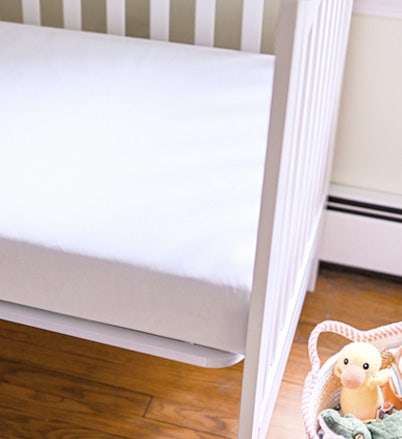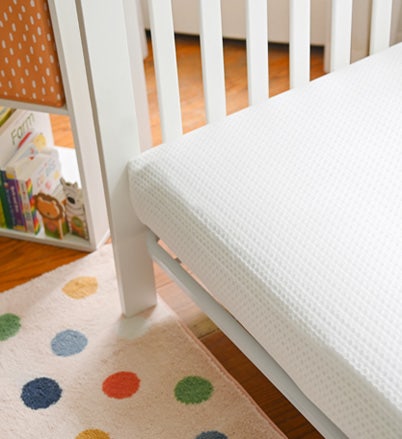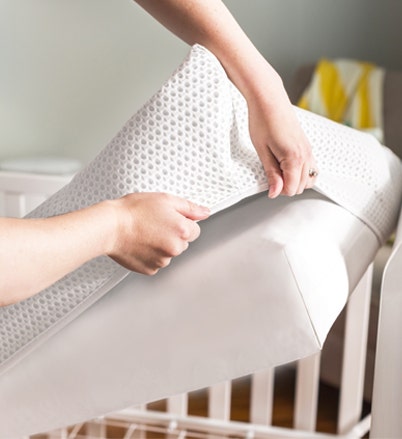Two words spark fear in any parent: sleep regressions. Cue Beethoven’s fifth.
Things have just started to settle down in your household, which feels like a big achievement when there’s a new baby at home. You finally feel a sense of calm around sleep … until a dreaded sleep regression comes along and messes everything up!
Let's look at why sleep regressions happen, when they happen and if we can do anything to prevent them. I’ll also share my top tips for getting your baby’s sleep back on track – because when they sleep better, your whole family does!
What Is a Sleep Regression?
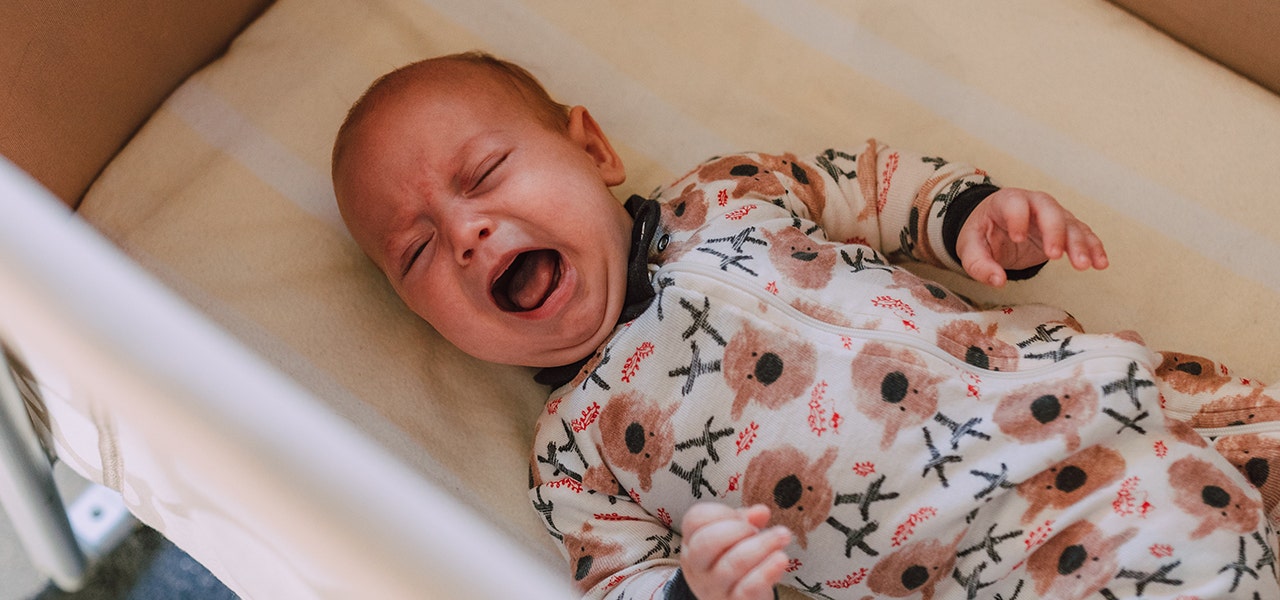

It’s in the name: a sleep regression is a time when your child's sleep patterns regress, or seem to go backwards. They may suddenly have a harder time falling asleep at the beginning of the night or nap, and wake-ups may become more frequent. This can drastically reduce the amount of sleep they’re getting each night.
Believe it or not, sleep isn’t something that we are born knowing when and how to do. It’s learned! In the beginning of your baby’s life, you’ll spend a lot of time – and sleepless nights – trying to teach your little one how to get their body all that good rest it needs to grow.
During a sleep regression, it feels like your child has forgotten everything they’ve learned about sleep. Before, they could fall asleep without help, but now they may need your help again – rubbing their tummy a little to soothe them or spending what feels like hours rocking them to sleep. Just when you feel like you’ve regained your own ability to sleep throughout the night, your baby is back to square one, and you’re there with them. It can be tough!
Why Do Baby Sleep Regressions Happen?
There are two main reasons baby and toddler sleep regressions happen. The first, which you probably know about, is when your child reaches a developmental leap and is going through a period of rapid growth and learning.
As your child learns new skills, like talking or walking, you'll notice them practicing all the time until the skill is perfected. This means that now sleep time is also a time to work on their new skills, and not so much time for sleep anymore! You’ll hear them babbling in bed or see them standing in their crib on the baby monitor when they should be sleeping.
The second reason sleep regressions happen is when a significant change happens in their life. This could be starting daycare, having visitors, moving houses, traveling or a parent going back to work. Changes bring about big feelings, and your child's sleep may temporarily become disturbed as they learn to process and manage change.
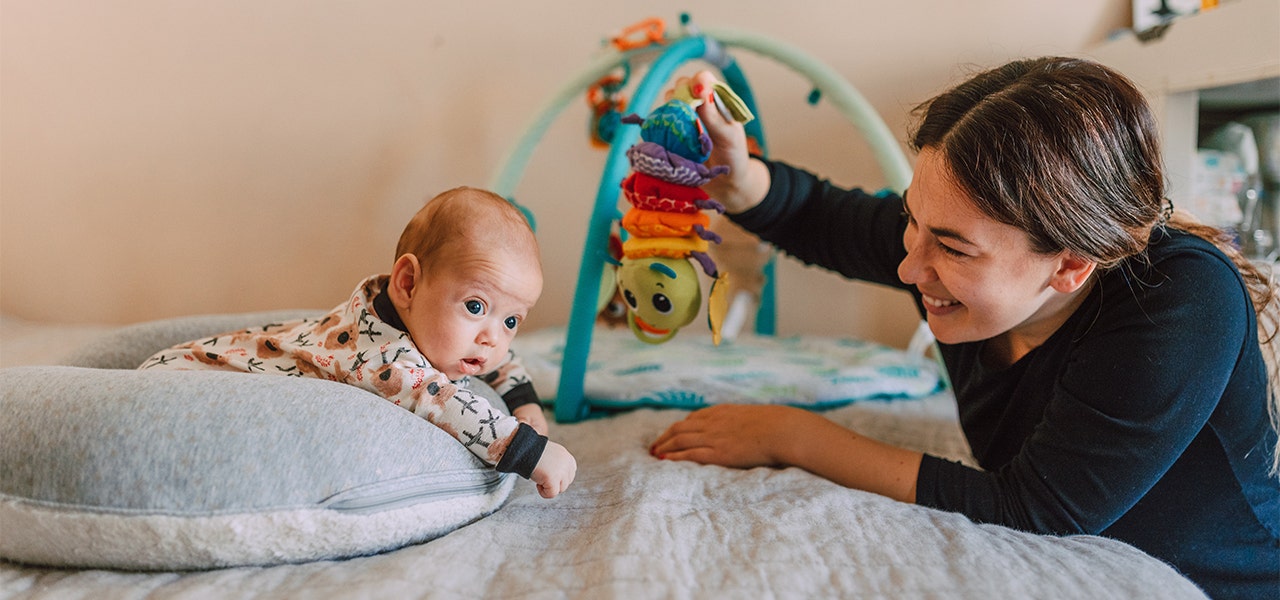

Can We Avoid Sleep Regressions?
Unfortunately, the answer is no. Sleep regressions are unavoidable. Your child is going to learn new skills and lose sleep perfecting them. Things will happen in their lives that impact their sleep. All of this is normal!
Although sleep regressions can't be avoided, there are a few things we can do to help make them as short as possible.
Encourage New Skills
You may notice this when your child is learning to roll: they try to roll everywhere, all the time! You try to change their diaper, they try to roll. You try to get them in their car seat, they try to roll. You try to get them bathed, dressed, to lie on the rug … they will try to roll!
However, once these skills are perfected, they no longer need to practice all the time. So, when your child is learning a new skill, encourage them! Set aside lots of time in your day to practice crawling, talking, rolling, etc. together. Practice makes perfect, and the sooner they learn, the sooner they’ll sleep!
Try Out Crib Playtime
Does it seem like your baby only wants to practice their new skills in their crib? Well, if the only time they get to work on these skills is when we want them to sleep, that's when they'll practice. It doesn't bother them if it's 3 a.m.! If you introduce playtime in their bed each day, they can work on these skills during playtime. Practicing skills at 3 p.m. is far easier for you than 3 a.m.!
- I'm sure you've heard that your child's bed should only be used for sleep and never playtime. I have to disagree with this for several reasons.
- It allows them to work on skills during the day and not in the middle of the night.
If your child wakes during the night and is happy enough to play in their bed alone for a little before comfortably getting themselves back to sleep, how is that a problem?
Each day, plan for a short playtime in your child's bed. Start with just a few minutes. You can increase the duration each day as they become more comfortable.
Prepare for Changes Before they Happen
Of course, if your child is going through a sleep regression due to a significant change in their life, know that when things settle down, so should their sleep. You can help them prepare for changes to mitigate the adjustment period – for example, if a parent is returning to work, try spending a little bit of time apart each day leading up to the change.
There is no set time these things will take. It depends on your child, their temperament and the change itself – know that things will get better!
How Does Sleep Get Back on Track?


The good news is that once your little one is out of the sleep regression, their sleep may naturally improve and get back on track! It also may not, and that’s okay too. Sometimes, the longer sleep has been disrupted, the longer it will take to recover. Here’s what you should do:
- See how their sleep shifts back naturally. If it fixes itself, great!
- If you hit a plateau in progress, you can step in to help your child get sleep back on track. If you’ve sleep trained in the past, try it again!
- If you've not done any sleep training, consider some gentle sleep training to get your family's sleep back on track.
And remember, the key to navigating a sleep regression is patience. A positive outlook helps too! Your little one will be sleeping again in no time – and so will you.

